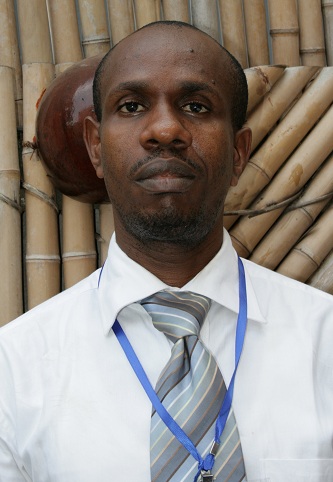January 2013
- Posting by PRAWA
- News
A blogger from Worldwithouttorture

Although a global problem, torture takes shape in different ways in different contexts. Tackling it is also a local challenge, with human rights defenders asking, how does torture happen here?
PRAWA, or Prisoners Rehabilitation and Welfare Action, is a Nigerian rehabilitation and advocacy organisation and member of the IRCT. They have developed a methodology and series of programmes to prevent torture from happening in the first place, one that is nearly so obvious and simple.
In Nigeria, torture happens in prisons. It happens when people come in contact with police and prison authorities. It happens through the horrific and inhumane conditions of prisons.
There is a vast problem of crime in Nigeria, says Godwin Ugbor, a psychologist at PRAWA based in their Enugu headquarters. This is mostly related to dire poverty and hunger. While the country itself is rich from oil – one of the largest oil producers in the world – this wealth has not been distributed widely. It’s the 49th most unequal country, meaning any wealth is only held by a few.
“There is just so much hunger,” Godwin says. The result of that poverty and inequality, he explains, is rampant crime.
Furthermore, the high rate of crime in Nigeria means there is increased pressure on police services to function well and arrest perpetrators – but they suffer from the same poverty and lack of proper funding and training as the rest of the country.
“Because they don’t have the skills, they resort to torture,” he says.
So, one of PRAWA’s approaches to preventing torture – keep people out of the judicial system. Although people are sometimes implicated and tortured for crimes they never committed, the best method of prevention is to ensure that the young don’t become involved in criminal activity. Additionally, they work with the police and justice system apparatuses to bring about a human rights ethic to their work. And for those in prison, PRAWA provides psychological rehabilitation during their sentences and through the transition to public life. If most torture occurs in prisons and police lock-ups, then PRAWA rehabilitates prisoners.
Godwin has only been a psychologist for a year and a half, but he’s jumped into this work quickly, almost ‘overwhelmingly’, he says. It’s never-ending work, with prisoners and other clients calling at all hours.
“Your personal life is lost.”
Godwin started working with prisoners during an internship, one of four he had during his studies to become a psychologist.
“The system is so flawed and the conditions in prison so terrible, you develop a great deal of sympathy. It is a large group of people that really need help.”
Terrible may be an understatement. “Say they built a prison for 100, maybe 400 people will be living there. It’s extremely overcrowded. A cell for five, may have 20 people. There are bad sanitary conditions. Not good personnel working there. And really horrible food.”
Godwin says for those living under these conditions – often in long sentences or remaining there for months or years after they should be released due to flawed judicial processes – can develop chronic mental illnesses. Many prisons now have asylum cells for the mentally ill. He gets calls from them sometimes as late as 10pm, desperate for help and someone to talk to.
However, Godwin’s work has taken a turn recently to focus more on prevention – ensuring that the youth of Nigeria don’t get caught up in crime and risk arrest, becoming entangled with the judicial system and thus tortured.
The Illegal Migration Awareness Project (IMAP) trains youth and peer educators on the issues of illegal migration, a particularly relevant issue in Nigeria, Godwin says.
“Many youth want to leave the country and live without violence,” he says. But the impact of illegal migration can bring dire consequences. Many try to migrate across the desert, some dying during the journey. Others steal money, purchasing fake visas and passports and can be caught by officials. Those who make it abroad may have to resort to crime and theft to make ends meet.”
The education to peer leaders includes understanding alternatives to violence – training youth on how to handle certain situations without resorting to violence and aggression. Finally, career guidance programmes on vocational training and entrepreneurship assist youth in earning money, building a career, attending university and supporting themselves rather than turning to crime and theft.
“When I was in university, I would make shirts, shirts like this,” Godwin says while tugging at the fabric of his blue button-down. “That meant I was able to make enough money to support myself and attend school.”
It is methods like PRAWA’s that demonstrate the multi-faceted problem of torture – how problems of poverty increase one’s vulnerability to torture. And stopping torture means tackling it from all sides.
